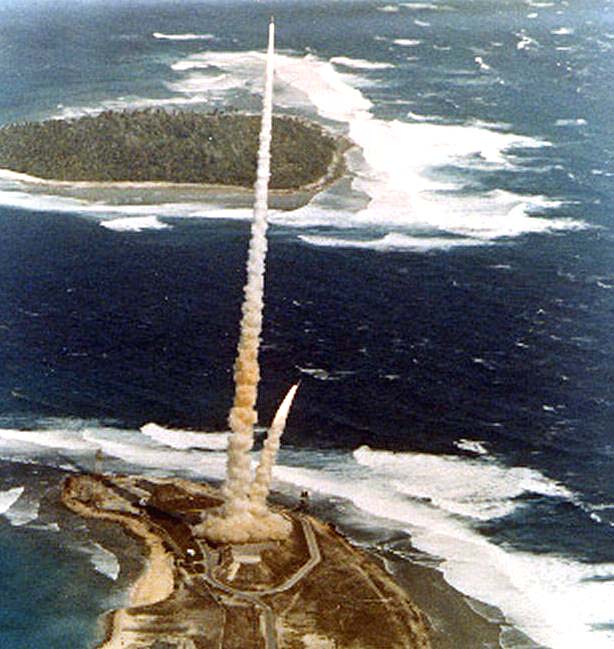Law School to Army Intelligence Training (1967-1968)
Law School to Army Intelligence Training (1967-1968) In talking about his post college years with Tony Bowe, Bill Bowe recalls how the Vietnam War and the draft began to change the student environment in both colleges and law schools. [...]
Riots & Rockets: A Half Century of Ballistic Missile & Satellite Defense
Bill Bowe, a former President of The Cliff Dwellers and Executive Vice President of Encyclopaedia Britannica, begins with a lighthearted look at a subject he’s been following since the 1950’s. Though hard to believe today, Nike missiles with nuclear warheads were once ready to be launched from 22 sites around Chicago, including Belmont Harbor and Jackson Park on the lakefront.
Kwajalein Atoll and the Ronald Reagan Ballistic Missile Test Site
Kwajalein Missile Range was then the western terminus of the Pacific Missile Test Range. Today it is formally known as the Ronald Reagan Ballistic Missile Test Site.







